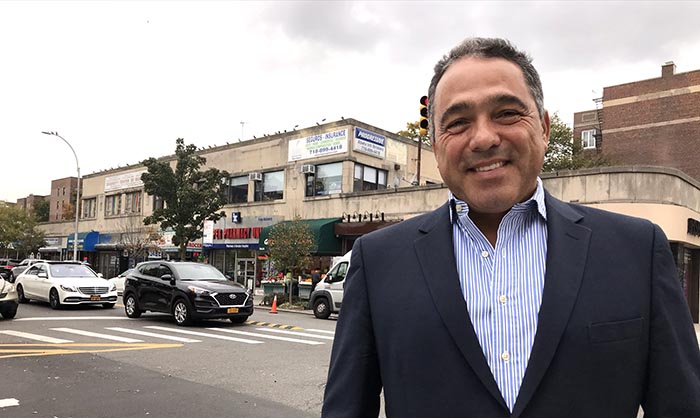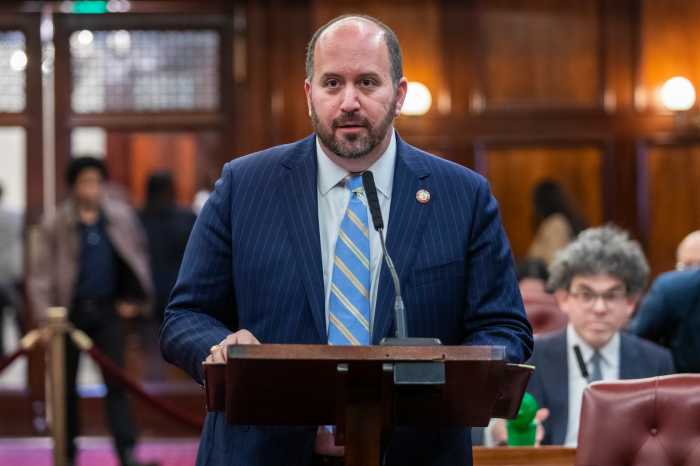Countless New Yorkers rely on grocery delivery to put food on the table and access daily essentials. It’s the mom rushing home from work. The mobility-limited senior who can’t make it to the store. The family living in a food desert, using their SNAP benefits to get nutritious food delivered to their doorstep from a store that would otherwise be out of reach.
Behind every order is a grocery delivery worker making it possible. These workers deserve to keep the flexibility that most say brought them to this work in the first place.
That’s why Mayor Adams was right to veto the City Council’s recent proposals, Int. 1133-A and 1135-A. They would have stripped away the very flexibility grocery delivery workers rely on, and at the same time, they would have made groceries more expensive for the New York families who need them most. New York can do better – and now is the moment to get it right.
To be clear: Instacart has long supported and advocated for a thoughtful minimum earnings standard for grocery delivery workers in New York City. We believe workers in the city should earn at least $21.44 per active hour. Our concern is not with the earnings requirement itself, but with how these bills would be implemented. As drafted, they open the door for the Department of Consumer and Worker Protection (DCWP) to impose a “utilization-based” model like the one applied to restaurant delivery platforms. That approach stripped away flexibility, forcing companies to manage workers through rigid shifts and limiting when people could go online.
According to the city’s own data, that restaurant delivery legislation resulted in tens of thousands of delivery workers being locked out of Uber Eats and DoorDash, the cost of food deliveries surged 10%, tips fell by 68%, and fees on restaurants surged 13%.
Flexibility is among the main reasons shoppers choose to work on the Instacart platform. In fact, on average, they work less than 10 hours a week on Instacart. Most are women, and many are balancing school schedules, childcare, other jobs, or caring for aging parents.
For these New Yorkers, the ability to earn money on their own time and their own terms is not just a preference — it is essential. It allows them to log on to work — and log off — at any moment they choose. Taking those flexible opportunities away from workers at a time when the city’s jobs economy is stagnating would be a devastating blow to the tens of thousands of New Yorkers who rely on Instacart for supplemental income.
If Int. 1133-A and 1135-A move forward unchanged, New York families, workers, and retailers would all bear the burden. Shoppers will see fewer chances to earn. Local, independent grocers will be hit with costs they can’t absorb. Customers will face higher prices. And for the people who depend most on delivery — seniors, the mobility-impaired, families in food deserts, and 66,000 SNAP households in NYC — it could mean one more door closing at the exact moment budgets are being stretched to the breaking point.
It doesn’t have to be this way. New York City can have both: a $21.44 minimum pay standard and the flexibility workers consistently, loudly say they want. And that’s what shoppers and customers alike are advocating for. Not a single Instacart shopper testified in favor of these bills when they were introduced. Instead, more than 1,200 wrote directly to the Council in opposition.
The stakes are too high to get this wrong. Grocery delivery is not a luxury. It’s a lifeline woven into the fabric of this city. A lifeline for workers seeking extra income. A lifeline for families putting food on the table. A lifeline for local grocers trying to compete, survive, and serve their communities.
Instacart continues to stand ready to work with Speaker Adams and the Council to deliver a solution that honors all of that. New York City deserves a win-win: fair pay, real flexibility, and a stronger system for everyone who counts on it.
Dani Dudeck is the Chief Corporate Affairs Officer at Instacart.










